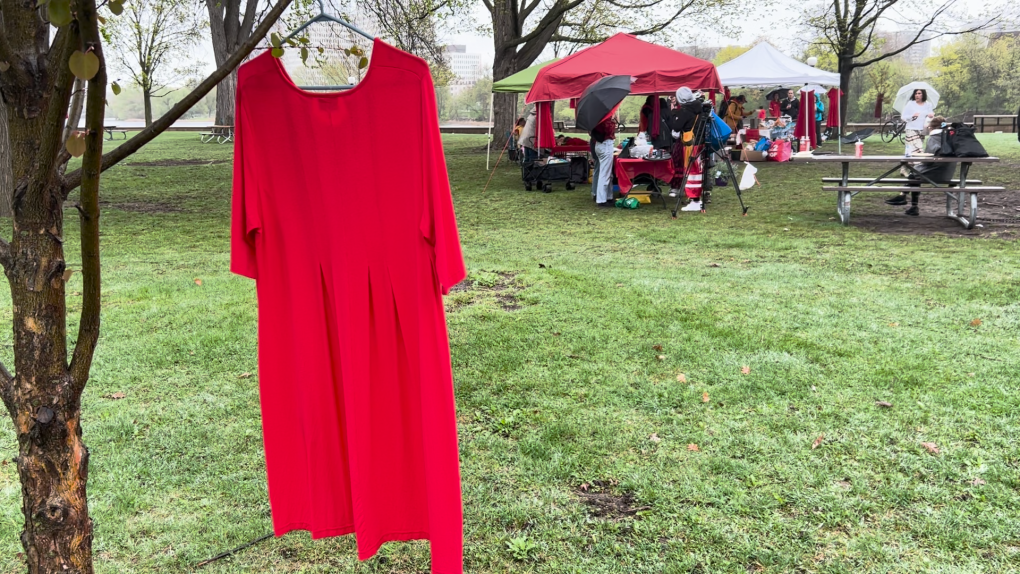
Red dresses swayed in the breeze at Strathcona Park in Ottawa on Sunday as an eye-catching reminder of the injustice Indigenous women and girls face in Canada.
May 5 is the national day of awareness for missing and murdered Indigenous women and girls, also known as Red Dress Day.
It is a cause near and dear to Bridget Tolley, who aided in hanging red dresses from trees and benches around the park.
“This is just a way of showing our love for them,” she said.
Tolley’s mother was struck and killed by a Sûreté du Québec cruiser in 2001. Her case was closed three months later, with no notification to Tolley and her family.
“We never got any information, so this is why I’m still here 20 years later bringing her case up.”
She founded Families of Sisters in Spirit in 2011, and has been fighting ever since for more accountability from the government and police, as well as expanded services for Indigenous people.
When women and girls from First Nation, Inuit, and Métis communities are murdered or go missing, Tolley says families can be left feeling helpless.
“These national organizations – they’re not involved,” she explained. “They work from nine to five, and after that, who helps families? Most of the time, it’s the families that have been doing their own searches.”
A 2023 study from Statistics Canada shows from 2009 to 2021, the rate of homicides against First Nations, Métis and Inuit women and girls was six times higher than that of non-indigenous Canadians.
Nine in 10 homicides involving Indigenous women and girls that were reported to police during that timespan were solved.
From 2015 to 2021, a third of unsolved homicides involving Indigenous women and girls began with the victim being reported missing at the time of her death.
Many, like Amanda Fox, only heard of the stats after a tragedy.
“My sister, she was murdered 11 years ago – that gave me awareness,” she said. “Learning the hard way, but now to have these events, it’s really important to spread that awareness.”
The two dozen gatherers shared a meal as Sunday’s rain pelted the tents overhead – a good turnout for a damp day, but Fox says she wants to see more.
“I find people still turn a blind eye so there’s a lot to be done. This park should be full and there’s not many people here,” Fox said.
Strathcona Park resides in the Rideau-Vanier ward – known colloquially as ‘Little Nunavut’ for its high percentage of Indigenous residents. As a result, there exist a number of community organizations aimed at providing support to these groups.
“We have a lot of great organizations and I just think it behooves us to support them,” said Rideau-Vanier Coun. Stéphanie Plante.
Indigenous individuals dealing with mental health concerns can find support 24-hours a day through the First Nations and Inuit Hope for Wellness Helpline at 1-855-242-3310.